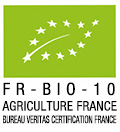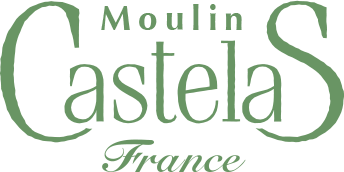What is organic farming?
LIVING, FERTILE SOIL
- appropriate crop rotations, which help the soil regenerate itself
- growing green fertilisers and legumes
- recycling and composting organic matter
- using natural fertilisers and amendments.
FARMING WITHOUT SYNTHETIC CHEMICALS OR GMO’S
Respect for water quality
Organic farming practices prevent the contamination of surface and underground water, and reduce their nitrate levels.
Organic farmers use limited amounts of natural fertilisers to amend their soil.
Organic farming makes a major contribution to maintaining and improving water quality.
FARMING THAT PROMOTES BIODIVERSITY
By respecting natural equilibria and the diversity of plant and animal species, and by not using synthetic chemicals and GMOs, organic farming helps to safeguard the planet.
The development of organic farming is also helping to bring about change in traditional farming practices.
A GUARANTEE OF NATURAL, AUTHENTIC FOOD
This is why organic, mechanical and physical methods are preferred (for example: flour is stone-ground, oils are cold-pressed, etc.).
Limited use of additives
- Processors of organic produce do no use synthetic chemical colorants and flavourings, or flavour enhancers.
- The number of authorised additives is heavily restricted (47 versus 300 in the conventional food industry) and most of these are of agricultural or natural origin. Organic regulations only permit additives that are essential for preparing and preserving certain processed foods.
- Supplementing organic foods with vitamins, minerals, anti-oxidants, etc. is prohibited unless required by law (for example: jars of baby food in France).
- Irradiation is prohibited.
UNDERSTANDING THE EU ORGANIC LOGO


Below the European logo, the following information must be stated:
- The certification agency code: "FR-BIO-10", indicating that we have been inspected by Bureau Veritas Certification France SAS.
- The place of production: "Agriculture France" for Castelas, because all our raw materials are produced in France.
The name of the certification agency is optional. In our case this is Bureau Veritas, Le Guillaumet, 92046 Paris la Défense cedex, France. We provide this information even though it is redundant following the code "FR-BIO-10".






